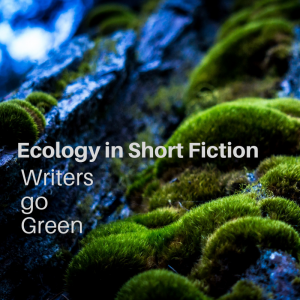Elizabethtown College English Department
writers in action
Eco-fiction at E-town
As ice caps melt and the world warms, you might wonder how Elizabethtown College integrates principles of sustainability into their English curriculum. E-town’s list of “Green Courses” reflects the College’s sustainable education commitment, and no course blends a love for nature and for writing better than Ecology in Short Fiction.
Ecology in Short Fiction pairs studying ecology with composing and analyzing creative fiction. Department Chair and Associate Professor of English Matt Skillen and Associate Professor of Biology David Bowne serve as co-instructors for this interdisciplinary course. 
The course syllabus generally follows the outline of any study of the short story, including lessons on setting, characters, conflicts, and endings. However, this class considers the elements of storytelling in relation to the environment. For example, a writer’s setting will consider biomes and habitats, and their characters will dive into questions of biodiversity.
The textbooks for this class includes a range of books from “The Man Who Planted Trees” to “There’s a Hair in my Dirt! A Worm’s Story.” But—unlike with other English classes—this class also will borrow a “Biological Science” textbook from E-town’s introductory Biology course: Molecules, Cells, and Animal Systems.
“This course is what education, be it liberal arts or pre-professional, is all about,” said Bowne in an email. “Learning to think and integrate, regardless of disciplinary boundaries. … It is unique. It’s a course that is, and to a certain extent, can only be offered at Elizabethtown College.”
Ecology in Short Fiction offers many benefits for students. The coursework culminates in an original short story of eco-fiction. The final project complements a portfolio for an internship or graduate school and showcases students’ experimentation with new genres.
Also, this course meets your Core requirements for both the (non-lab) Natural and Physical Science (NPS) and Creative Expression (CE) areas of understanding. There are no prerequisites, allowing students to fit these requirements into a freshman or senior semester.
“The big thing I got out of this course was that I could still pursue my interest in the environment even as a writing major,” said Jonathan Standke, a junior professional writing major. “And that I don’t need a degree in biology or environmental science to learn about the subject and write about it in a creative way that I enjoy.”
Standke entered E-town as an environmental management major interested in forestry. After he switched majors, he still enjoyed nature and the environment. According to Standke, this class “genuinely show you how two disciples can intersect and work together. If you have a passion for writing or for the environment I would suggest taking this class.”
And, according to the course instructors, successful careers aren’t built on the perspective of just one discipline. “This course is an example of what we can accomplish if we are not restricted to the notion of ‘STEM’ or ‘Humanities,’” said Bowne. “If we focus on education in all of its integrated glory, we can accomplish more.”
Author’s Bio: Marissa Kopp graduated from Elizabethtown College with dual majors in Environmental Science and Professional Writing. She worked as an In-Class Tutor of English at Harrisburg Area Community College and plans to work in a lab during her graduate program at Penn State.